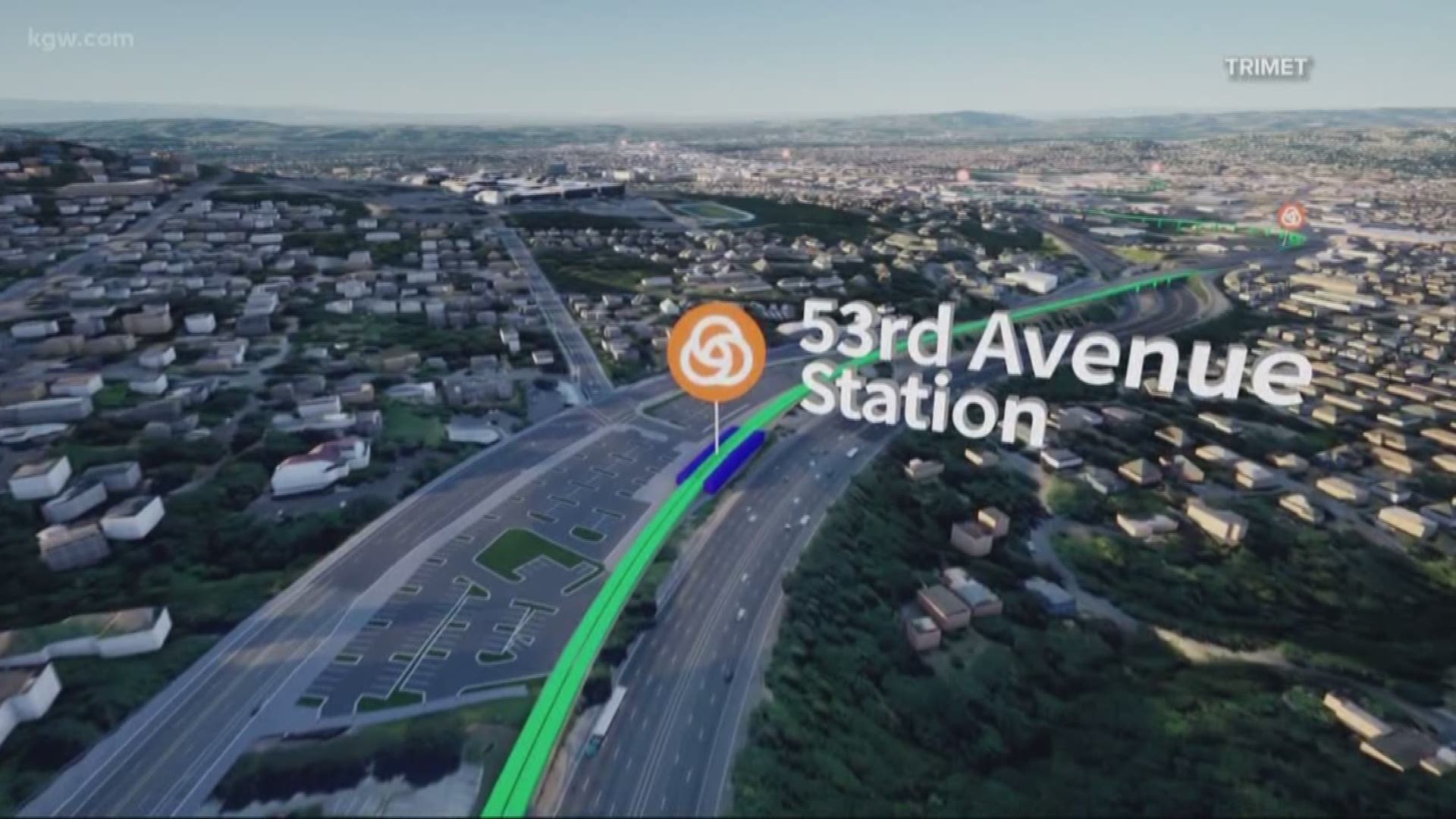PORTLAND, Ore. — From Portland to Tualatin in 30 minutes. That's the promise of the new Southwest Corridor Light Rail Project.
"30 minutes, consistently every day, day in and day out. And that's what this corridor needs as congestion grows," TriMet Public Information Officer Roberta Alstadt said.
Driving from Portland to Tualatin can feel like an unending trip for commuters and 30 minutes would be a decent time most days.
TriMet says traffic on the roadways is only going to get worse. They project congestion to increase by 17% by 2035, which is why they want to build the new line.
Last week, TriMet released a 3D bird's-eye view of the project, which connects popular centers such as Bridgeport Village, Downtown Tigard and West Portland Town Center.
The project will cost between $2.6 and $2.8 billion. It is expected to average 37,500 daily trips by 2035, including 20% of commuters going southbound from Downtown Portland during afternoon rush hours, according to TriMet.
In 2018, the Southwest Corridor Steering Committee and project partners selected an 11-mile route for the light rail line, along with as many as 13 stations and several roadway, bicycle and pedestrian improvements along the line and at station areas.
The project has been in the works for several years and is still in the design phase.
TriMet has already made changes based on public input, which includes SW Barbur Boulevard. The busy area was going to be cut to one lane each way with the rail line down the middle. Now, thanks to cost cutting and public input, it will be two lanes each way.
The big goal with the new line is efficient, safe transportation.
"It really does take people off the streets, out of their cars, and into trains and buses," Alstadt said.
However, John Charles doesn't see that happening.
"It's just a huge waste of money," he said.
Charles is the president of Cascade Policy Institute, a libertarian think tank in Portland. They oppose not only this project, but light rail in general.
"It's not high speed. It's not high capacity. It's really expensive. It doesn't go to most places where people need to go and, in fact, ridership peaked in 2012 and has been declining ever since," Charles said.
Charles believes buses and ride-sharing apps are a better option for the future.
"They have to be rubber-tire, road-based options, because roads take you everywhere you want to go," Charles said.
TriMet disagrees and wants to give commuters more options while working to reduce congestion as metropolitan populations continue to grow.
"People may choose to drive, other people want to get on light rail. They’ve been waiting for a solution to the growing congestion down there for decades," Alstadt said.
Back on the SW corridor, TriMet expects the new line will impact as many as 400 homes and businesses.
"That may mean buying a small sliver of a property or buying the whole property itself and relocating people," Alstadt said.
Half of those 400 properties face full acquisition by TriMet, according to Alstadt.
Charles is also worried about that.
"I think from a human standpoint, the fact that they're going to bulldoze over 200 properties — businesses, homes — kick those people out who have, possibly no other place to go. That's a concern," Charles said.
TriMet said they'll work with residents and businesses displaced by the project through their reimbursement and relocation program. TriMet has a short video explaining the process.
If the new line is built, half the money would come from the federal government. First, local taxpayers have to agree to pay the other half. That will likely be decided in a vote in November as part of the Metro Government's massive transportation package.
"It's critical we put together a good, local commitment on funding," Alstadt said. "We do hope that Metro will go forward with a bond measure. We do expect that to happen and funding for SW Corridor [Project] would be critical in that."
The project is far from being finalized. As the plans continue to evolve, TriMet wants to hear from the public. You can get a deeper look at the project and weigh in through their online open house at trimet.org/swcorridor.
There are also several public meetings. Find the one nearest to you at https://trimet.org/swcorridor/getinvolved.htm

